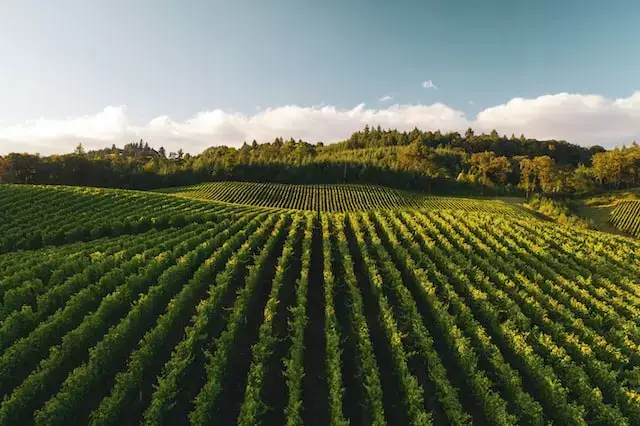Organic farming is getting mainstream as many people are opting for health and a healthy lifestyle. Even though most of the available agricultural land is used for conventional farming, many farmers are willingly switching to organic farming due to the rising demand for organic food products. Here are some of the key facts one must know before stepping into the organic farming industry.
Fundamentals of Organic Farming
There are several definitions associated with organic farming, but most of them claim that organic farming excludes synthetically obtained fertilizers and pesticides. Organic farming completely relies on natural farming methods inclusive of sustainable practices while ensuring fundamental values. In leman’s terms, organic farming directly relates to the philosophy of working together in conjunction with nature.
As per recent farm management lookout, organic farming correlates to curating a socially, environmentally, and economically sustainable food production cycle. Precisely speaking, organic farming is aimed at managing agro ecosystem instead of relying on external farming inputs, including pesticides, chemical fertilizers, additives, and genetically manipulated organisms.
Practically speaking, organic farming includes traditional farming methods with modern scientific research and modern innovations. For example, using dried leaves manure, and biological soil disinfestation instead of synthetic fertilizers for cultivation.
How Organic Food Became so Popular?
A rise in world population sparked when the need for more sustainability in food production became more obvious. Synthetic chemicals only aid in higher yields, but it also lays additional pressure on global issues such as:
- Climate Change
- Damaging biodiversity
- Rapid Soil Erosion
- Environmental Pollution
To fulfill global food demands and mitigate the aforementioned problems, many nations around the globe have turned to organic farming practices. Today, there are 2.3 million ensured natural ranchers in 172 nations. All the more significantly, the agrarian land under natural cultivation is continually expanding. In any case, natural cultivation possesses just 1% of the all-out horticultural land. The justification for so a little level of natural rural land lies in the way that natural ranchers typically develop their yields on more modest surfaces than ordinary.
The Fundamental Standards of Natural Cultivation
Natural cultivation is controlled in every country. In any case, there are standards normal to every natural rancher. These are as per the following:
The rule of wellbeing claims that natural cultivation is planned to safeguard and upgrade the soundness of all living beings (this incorporates soil microorganisms, as well as people)
The rule of biology depends on the way that natural cultivation ought to safeguard and help the climate (scene, environment, normal living spaces, biodiversity, air, water, and soil)
The guideline of decency expects to give socially and naturally fitting administration over ecological assets, as well as give an adequate stock of value food and different items.
The standard of care stresses safeguard and obligation as the vital worries in natural homestead the executives.
Various Practices in Natural Cultivation
Every nation directs the regulations and guidelines for natural cultivation independently. Because of that, there are various kinds of practices remembered for different sorts of natural cultivation. Be that as it may, there are some well-known natural ranch rehearses normal to most natural ranchers:
Crop revolution used to keep up with soil ripeness and to further develop crop insurance from different bugs
Natural supplement the board, depends on the improvement of soil natural matter through manuring, treating the soil, or mulching
Developing cover crops is a helpful practice for controlling bug irritations and weeds, forestalling soil disintegration, as well as working on the supplement content in the dirt
Depending on normal hunters as a natural irritation insurance measure
Weeding as a non-substance weed administration practice
Anaerobic soil disinfestation that wipes out or diminishes soil-borne bugs
Appropriate space between crops
Mechanical soil development
Reusing materials
Depending on sustainable assets
Natural Cultivation: Staying Productive While Safeguarding the Climate
One of the central discussions in natural or regular cultivation is the subject of benefit. While the acts of both can be discussed, ranchers are generally worried about the efficiency and productivity of each. Ranch efficiency relies upon many variables, including crop qualities, soil type, atmospheric conditions, and bug vermin and infections, among others.
Ordinary cultivation is accepted to be more useful than natural. Nonetheless, higher info expenses and lower market cost influences its benefit. If we investigate the yields, natural cultivation is still less useful than ordinary. One justification behind this is the way that natural cultivation supports crop development, while customary cultivation takes out potential yield harms.
A few models are showing natural cultivation as holding incredible potential for sufficient yields. Research led by the Rodale Establishment demonstrated that naturally developed corn has a yield that is 31% higher than routinely developed corn during long periods of the dry season. At long last, natural cultivation has been demonstrated to be an effective practice disregarding ordinary lower yields. One justification for the productivity of natural creation is the higher market value that naturally developed harvests an interest. Confirmed natural items will quite often be more costly for the public to buy than their ordinary partners.
The primary justification for this huge value contrast is the restricted stock of natural items accessible, prompting higher market interest. Due to bringing down creation inputs, more popularity for natural items, and greater costs that can be charged; natural ranchers might accomplish a tantamount measure of effectiveness. This assists natural producers with turning into serious areas of strength for a competent market contender rather than the customary rancher.
Top Motivations to Cultivate Natural
Natural cultivation doesn’t simply mean returning to conventional techniques. Many cultivation techniques utilized in the past are as yet being utilized today. Natural cultivation takes the best of more established more customary cultivation strategies and consolidates them with current logical information. Anyway, should ranchers change to natural cultivation or modernize through regular cultivation procedures?


The point about organic farming’s impact on climate change and biodiversity is so important. It’s good to know there are farming methods that prioritize the environment.